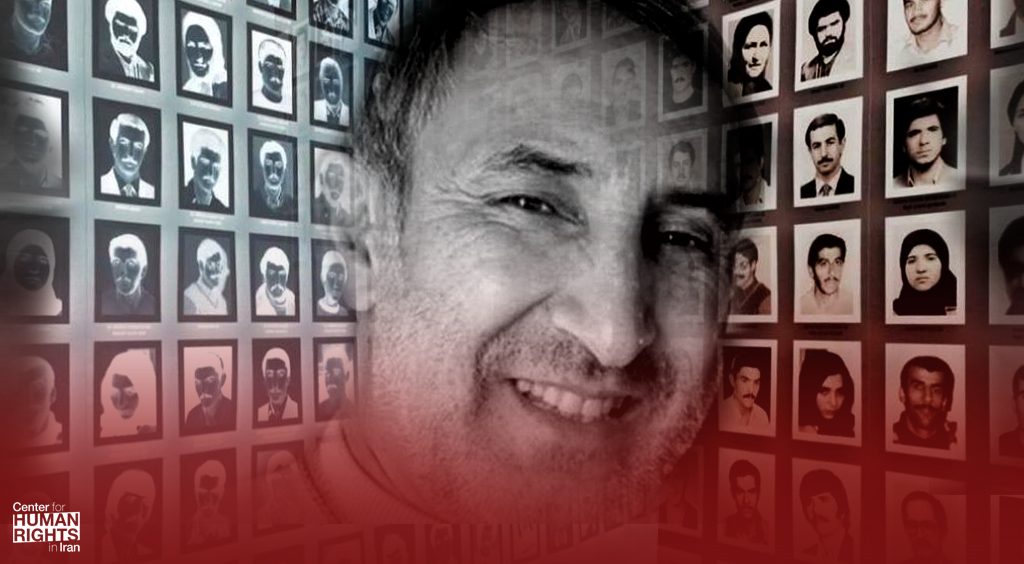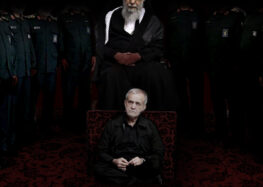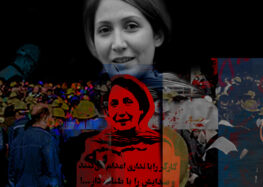Swedish Trial of Iranian Prosecutor Offers Historic Opportunity to Shed Light on Iran’s 1988 Massacre
 Upcoming Trial of Hamid Nouri May Reveal Details of Executions of Thousands of Prisoners and Role of Incoming President Raisi
Upcoming Trial of Hamid Nouri May Reveal Details of Executions of Thousands of Prisoners and Role of Incoming President Raisi
August 4, 2021—The upcoming trial of a former assistant prosecutor in Iran, Hamid Nouri, in a Swedish court on charges of committing war crimes and murder for the executions of thousands of prisoners in Iran during the 1980s, is a historic opportunity for Iranian families who have been seeking justice for more than 30 years, the Center for Human Rights in Iran (CHRI) said today.
The determined pursuit of this case by the Swedish judicial authorities can open a new chapter in the Iranian people’s justice-seeking movement, and finally shed light on the extrajudicial massacre of some 5000 political prisoners by the Iranian authorities at that time.
“Putting one of the officials responsible for the mass killings of political prisoners in 1988 on trial in a foreign country is an extraordinary occasion for the international community to examine the crimes against humanity committed in Iran at that time,” said Hadi Ghaemi, CHRI’s executive director.
The statement from Swedish public prosecutors Kristina Lindhoff Carleson and Martina Winslow, accusing Nouri of “intentionally killing, together with other perpetrators, a large number of prisoners who sympathized with various left-wing groups and who were regarded as apostates,” has been a source of encouragement for families who have been ignored or persecuted by the Iranian authorities for seeking justice.
CHRI considers Nouri’s trial an unprecedented opportunity to reveal long-hidden aspects of gross human rights violations that were committed by the Islamic Republic of Iran. The international community, and especially human rights organizations, should consider this a vital chance to access facts about the 1988 massacre.
Witnesses Have Identified Nouri, Who Worked Closely with President Elect Ebrahim Raisi
Nouri was arrested on November 9, 2019, as he arrived at Stockholm’s Arlanda Airport to visit relatives, and was held on suspicion of committing mass murder in Iran. His detention order was extended for 20 months to give prosecutors time to build their case.
Witnesses have come forward to identify Nouri as an assistant prosecutor in Gohardasht Prison in Karaj, west of Tehran, during the mass execution of political prisoners in the summer of 1988.
According to Iraj Mesdaghi, a former political prisoner and eyewitness at Gohardasht, Nouri worked closely with current President Ebrahim Raisi and former Justice Minister Mostafa Pourmohammadi. In 1988, Raisi and Pourmohammadi were members of a “death committee” that ordered the execution of the approximately 5000 political prisoners, all of whom had already been issued and were serving their prison sentences.
The committee, appointed by the founder of the Islamic Republic Ayatollah Ruhollah Khomeini, included Raisi, who was then deputy prosecutor of Tehran; Pourmohammadi, an Intelligence Ministry representative at the time; Morteza Eshraghi, Tehran Prosecutor at the time, and Hossein Ali Nayeri, then the religious judge at Evin Prison and now a high court judge.
Iranian authorities have remained largely silent on Nouri’s case ever since his arrest, and have not commented on his indictment.
The victims’ families, especially the group known as Mothers of Khavaran, have kept the memory of the tragedy alive with annual vigils at the Khavaran Cemetery in south Tehran, where many of the victims were buried in mass graves. Families have been harassed and persecuted by the Iranian authorities for trying to find information about their murdered relatives.
Read this article in Persian.






